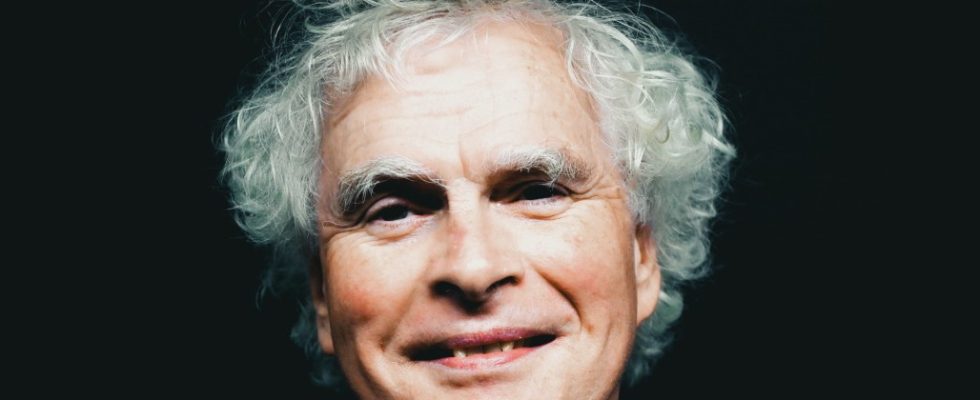Sir Simon Rattle is one of the greatest conductors of this time. And he is a humanitarian. This is not only reflected in the way the Brit literally embraces the audience with his music at his concerts in the world’s philharmonic halls. Even in conversations, be it with young people who are rehearsing with him or during interviews, he always seems completely present and attentive.
SZ: Mariss Jansons also left you with the traditional SZ Advent calendar concert with the Bavarian Radio Symphony Orchestra (BRSO). The SZ is very pleased that you are continuing this tradition. How are you doing with that?
Simon Rattle: The concert is a treasure. It’s a typical Mariss Jansons project. Mariss was a person worthy of the name. Two of the city’s largest institutions are joining forces for this concert to help. Nothing matters anymore.
Does a benefit concert feel different than other concerts for the musicians?
Often it does. This has more to do with the atmosphere that comes from the audience than with the way we play music. There is a touch of something bigger about these concerts, which sets them apart from normal events.
Are musicality and the ability to empathize with others somehow related?
One would like to believe it. But of course musicians are like the rest of humanity, we can be generous people or terribly selfish ones. But I’m still hopeful: music can help us become better people. Music is an art with healing power.
It is said that music can also express the inexpressible. Is that correct?
I’m sure music and rhythm were part of human existence long before language existed. It goes straight to the heart and stomach. Maybe she can really express things that words fail. But my answer probably just shows that I’m better with music than with words.
Musical children often perform at a young age in retirement homes or at other charity evenings. How was that for you?
As a child I played in the Mercyside Youth Orchestra of the Liverpool Philharmonic, which has just celebrated its 70th birthday. We gave a lot of charity concerts back then. And as a teenager I taught at a school for the blind. I don’t know how much the children have learned from me. But I learned more about life than I can say here. I believe each of us feels the desire to give something back from the happiness we have experienced.
Simon Rattle at this year’s benefit concert for the SZ relief organization in the Hercules Hall of the Residenz with the Bavarian Radio Symphony Orchestra.
(Photo: Robert Haas)
They set off early into the world, beyond the borders of England.
In my early twenties I worked with the Rotterdam Philharmonic. During my professional life, the orchestras became more and more international in terms of their composition, but the Rotterdam one was already an extraordinary melting pot, especially of musicians from the East. I sat at the table with them and listened to their stories with big ears. But every orchestra also has its own personality. Anyone who becomes a part of it tends to take on this same character over the years.
How does this show up?
I have observed this again and again. It’s hard to believe how differently an individual can play depending on which ensemble they are in. This is one of the mysteries of music. What is the history of it, what is the spirit of an orchestra? What signs on the wall can none of its members resist?
Almost every modern top orchestra is a big melting pot of nations and characters. How does this affect?
It always gives us more variation options and vitamins for making music! And sure, it’s a cliché that music is an international language. But I am convinced that the more we play together as a mixture of different nations, the better we will understand each other in the future. And in these dark times our world is living through, we need that more desperately than ever.

